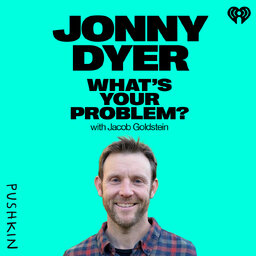Revealing How Much Health Care Really Costs
Chris Severn is the co-founder and CEO of Turquoise Health.
Chris's problem is this: How do you figure out the real price trip of a trip to the hospital -- before it happens?
People have been trying to solve this problem for decades, but there's a good reason to think that this time is different. In 2019, the federal government issued a new rule that said insurers and hospitals have to publish their prices. Not just the fake list prices that nobody pays. But the actual, real, negotiated prices. This rule is just starting to take effect. Its impact could be huge.
If you’d like to keep up with the most recent news from this and other Pushkin podcasts be sure to subscribe to our email list.
In 1 playlist(s)
What's Your Problem?
Every week on What’s Your Problem, entrepreneurs and engineers talk about the future they’re trying …Social links
Follow podcast
Recent clips

Fighting Wildfires from Space
48:58

The Killer We Refused to See
39:13

The Startup Run by AI Agents
54:16
 What's Your Problem?
What's Your Problem?